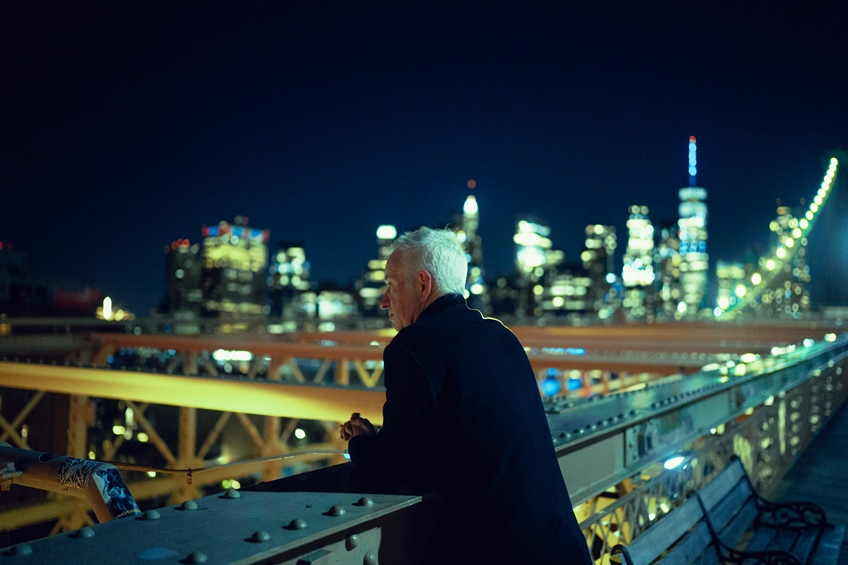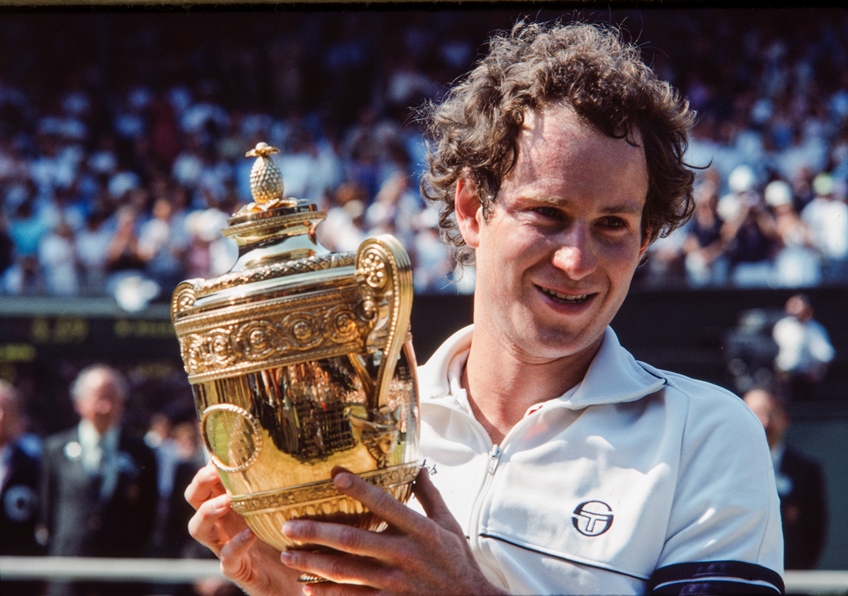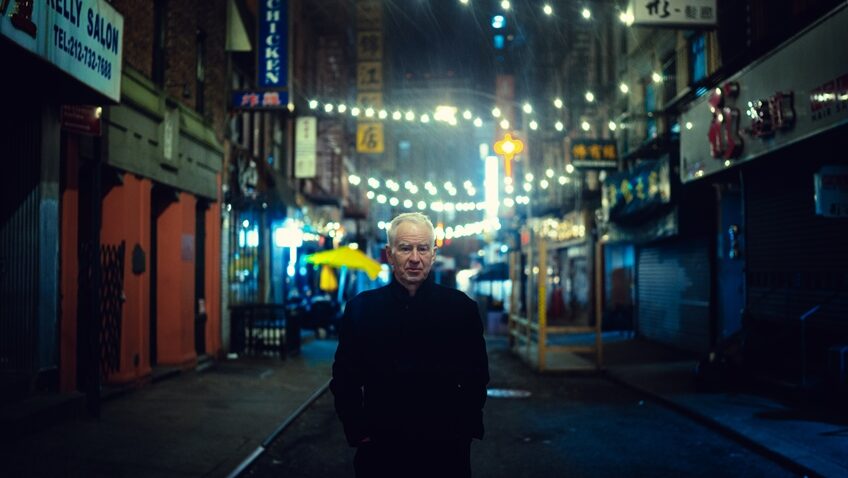Joyce Glaser reviews McEnroe (July 15, 2022) Cert 15, 103 mins.
American tennis champion John McEnroe still holds the record for the most combined titles in the Men’s Open Era (155, including doubles). He might also hold the record for the number of films made about him in the past 5 years – nearly a quarter of a century since he retired. After Borg vs McEnroe (2017) and In The Realm of Perfection (2019) both highlighted McEnroe’s determination to do everything it takes to win, and coming to question that mantra.
Barney Douglas’s McEnroe homes in on that questioning and shows how professional tennis’s “super brat” came to terms with his insatiable quest for perfection, a perfection that eluded him, even when he was number one in the world. We get access to McEnroe the man alone with his past; the father (McEnroe’s five children feature in the film); and husband (musician Patty Smyth, not Tatum O’Neal) ruminating on McEnroe the tennis pro. Smyth (not THE Patti Smith) sums up the film’s trajectory: ‘I married a bad boy who became a really good man.’
McEnroe’s continued popularity and familiarity forty years after his grand slam wins (three Wimbledon’s and four US Opens) is not only due to his presence as a commentator on BBC’s Wimbledon Coverage (outspoken about the decision to prevent the anti-vax Djokovic from playing in Australia and the USA and Wimbledon’s decision to ban the Russian players). His personal life off the court was as colourful as his bad boy antics on the court for which he is still remembered, somewhat to his annoyance.

People of a certain age will remember that McEnroe led a celebrity lifestyle, more in tune with a movie star or rock star than with an athlete. After he beat fellow New Yorker Vitas Gerulaitis in the 1979 US Open, Vitas, a playboy and bon vivant four years McEnroe’s senior, invited McEnroe out to Studio 54. ‘He just walked right in…the girls loved him,’ an awestruck McEnroe recalls. We see the two friends filmed on MTV together, clearly under the influence. McEnroe played the guitar, hung out with Ronnie Wood, and had a child with Academy Award winner Tatum O’Neal. They married in 1985, during his first break from tennis, the result of a lull following his best year, 1984. Their high profile divorce, two more children and nine years later, allegedly caused by O’Neal’s addiction problems, coincided with McEnroe’s retirement.
McEnroe began life more modestly in Douglaston, Queens, coached by his military (turned lawyer) father at the local tennis club, and in school by his tiger mother who expected a perfect report card. He was recognised early on for his talent in maths and tennis, and for his temperament. But McEnroe did not want to be a professional tennis player until he was awed by watching the idylls he would soon conquer: Jimmy Connors, Borg (‘like a Viking God’) and Gerulaitis, and by the lifestyle: travel, money and girls.
As an 18-year-old amateur in 1977, McEnroe won the mixed doubles at the French Open then, as a qualifier in Wimbledon, made it to the semi-finals, nearly beating Jimmy Connors in a four set match. His future was secured as the commentators noticed his spectacular hand-eye coordination and intelligent plays at the net.
‘Don’t worry about the umpire; you’re better than them’ his father, who became McEnroe’s manager, told him. McEnroe took that to heart, paying the price with fines and bans from tournaments. These are downplayed in the film, with McEnroe telling us that his bad boy image was exaggerated and that he was misunderstood.
McEnroe’s attacks on the umpire (‘You can’t be serious’ being his most famous, but not his worst) were misdirected criticisms of himself in the pressure box of centre court. He tried to keep calm like Björn Borg, but ultimately could not. He finds the perfect manners of a Pete Sampras and Roger Federer and the expressionless demeanour of Novak Djokovic admirable, but unnatural.
The consensus is that McEnroe’s quest for perfection – commented on in the film by Borg and Billie Jean King – that led him to say, ‘I’m the greatest player in the world. Why doesn’t it feel amazing?’ was instilled by his driven parents. But it may be what you need to sustain the momentum after becoming the youngest man in history to win the US Open. Whatever the cause, when he admits, ‘I felt like I was doomed’ despite his achievements, you understand what it’s like to be a top athlete, feeling only as good as your last game while already worrying about the losing the next.

Douglas’s film has the advantages – and disadvantages – of getting up close and personal with the now 63-year-old family man. The behind-the-scenes access into the trim elder statesman of tennis’s personal life living well on Manhattan’s Upper West Side, and to his private reflections, are the payback for the hagiography, particularly at the end when today’s superstars are paraded on camera praising the player, they never played but might have beaten. What are they going to say?
While McEnroe criticised Borg for retiring at 26 (and depriving the game of this matchless rivalry), little is said in the film of McEnroe’s twilight years, from 1986 to 1994, during which he failed to win any major matches. How does that feel? The missing debate about whether to be an Ashleigh Barty or a Roger Federer is an interesting and relevant one given that Borg’s retirement deprived McEnroe of an opponent who forced him to improve his game.
“You have to do whatever it takes to win at any cost” is a lesson young McEnroe learnt from Borg, but, 40 years later, both have realised the cost might be too high. Despite all this privileged introspection, the best part of the film is the archival segments, and in particular the tit for tat competition between McEnroe and Björn Borg, a competition that puts that of Nadal and Djokovic in the shade, if only because of its intensity and brevity. Björn Borg’s Wimbledon win in 1980 is arguably the greatest game of all time with McEnroe’s win in 1981 a close second.




